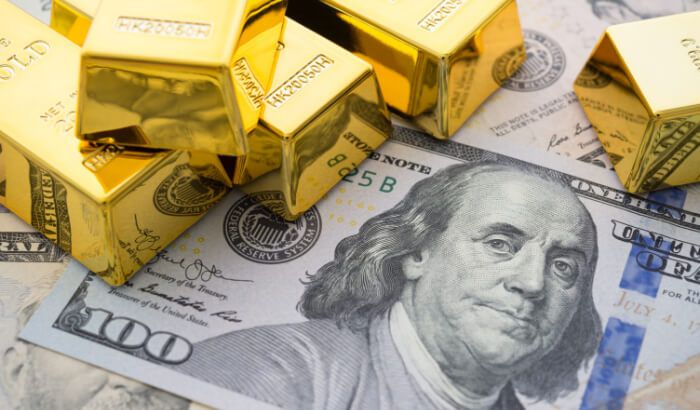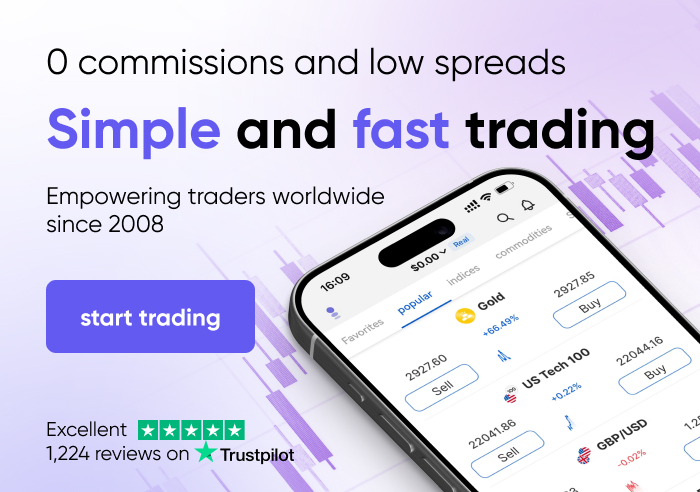Thursday Sep 28 2023 11:33

6 min

On Thursday, the price of gold held below $1,880 per ounce, staying close to its lowest levels in over six months. The downward pressure on the commodity can be mostly attributed to a strong U.S. dollar and surging Treasury yields, driven by the expectation of higher interest rates in the foreseeable future.
In recent days, the greenback reached its highest point in ten months when measured against a basket of other major currencies as part of the U.S. Dollar index (USDX), while the 10-year US Treasury yield has topped its highest levels since 2007.
Last week, the U.S. Federal Reserve (Fed) decided to keep interest rates unchanged within the 5.25% to 5.5% range but signaled the likelihood of another rate hike by the end of the 2023 and fewer rate cuts than previously anticipated for 2024.
Neel Kashkari, President of the Minneapolis Fed, also stated on Tuesday that there's approximately a 50-50 chance that interest rates may need to be raised significantly to combat inflation.
Investors are now eagerly awaiting the release of US GDP and weekly jobless claims data on Thursday, as well as the PCE price index – the Fed’s preferred gauge of inflation – on Friday, hoping for additional insights into the state of the economy.
Calculate your hypothetical required margin for a Commodities position, if you had opened it now.
Category

Instrument


Entry price
Exit price
Open date
Close date
Account Type
Direction
Quantity
Amount must be equal or higher than
Amount should be less than
Amount should be a multiple of the minimum lots increment
USD
EUR
GBP
CAD
AUD
CHF
ZAR
MXN
JPY
Spread
Conversion Fee
Overnight Swaps
Commission
P/L
P/L
Current conversion price:
Past performance is not a reliable indicator of future results.
In a recent comment, strategists at TD Securities said the gold forecast would depend on economic data readings worldwide, and highlighted the commodity’s resilience in the face of pressure from U.S. Treasury bond yields:
“[Federal Reserve] Chair Powell delivered a hawkish surprise, reiterating the ‘higher for longer’ narrative that has been the worst fear for the gold bugs.
Looking forward, the economic data will be instrumental in determining gold's direction. At the same time, strong physical markets continue to provide an offset to traditional macroeconomic relationships, underscoring the resilience of the yellow metal's prices against the sharp rise in yields.”
In their outlook for the yellow metal, economists at German lender Commerzbank said the commodity would likely remain under pressure around the $1,900 mark in the short term, with upside potential visible going forward:
“The main factor weighing on gold is presumably the expectation of interest rates remaining higher for longer after the Fed made fairly hawkish remarks last week. This is also evident in the marked appreciation of the USD. However, we are still skeptical about whether the Fed will in fact hike its interest rates even further in the autumn on the one hand, and on the other whether the current view of many market participants, namely that the US economy will experience a ‘soft landing’, will prove accurate.
We continue to see upside potential if anything for XAU/USD in the medium term. In the short term, however, gold may well make a renewed bid for the $1,900 mark if inflation fears increase in response to the recent sharp rise in oil and gasoline prices again and if at the same time, the US economy continues to perform fairly robustly for now.”
Analysts at Erste Group Research, cited by the FXStreet Insights Team, expected a sideways movement for the gold price in their forecast for the commodity:
“Real yields are already in positive territory in the US. This fact currently stands in the way of a sustained upward movement of the gold price.
We expect a sideways movement of the gold price in the range between approx. $1,930-$1,960 for the Q4.”
Analysts at Melbourne-based bank ANZ were highly bullish on the gold price, saying it could rise to $2,000 by the end of 2023:
“Gold prices have been resilient in the face of rising US Treasury yields and a stronger USD. While the ‘higher rates for longer’ narrative gains momentum in response to strong US economic data, we see these headwinds having limited impact on gold over the coming months.
We expect gold to trade near $2,000 by the end of this year.”
The gold price forecast shared by economic data aggregator TradingEconomics recently saw a bullish revision, seeing the commodity trading at a potential average of $1,947.73 by the end of this quarter. The platform’s 12-month gold projection estimated it to trade at $2,016.05 by the end of September 2024.
When considering gold and other commodities for trading and price predictions, remember that trading CFDs involves a significant degree of risk and could result in capital loss. Past performance is not indicative of any future results. This information is provided for informative purposes only and should not be construed to be investment advice.
Asset List
View Full ListLatest
View all
Tuesday, 15 April 2025

6 min

Tuesday, 15 April 2025

6 min

Monday, 14 April 2025

5 min


